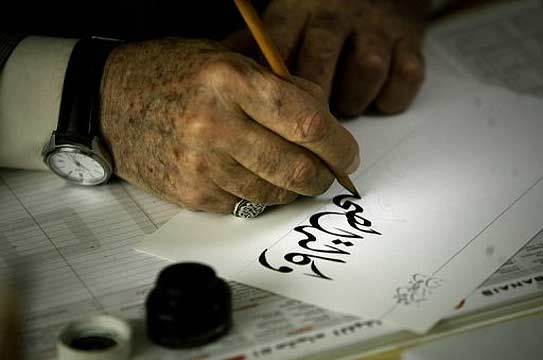 On Thursday night, the European parliament, after heated discussions, passed a resolution recommending the withholding of budget support to Egypt and tying financial aid to “significant progress” in areas of human rights, democracy and the rule of law.
On Thursday night, the European parliament, after heated discussions, passed a resolution recommending the withholding of budget support to Egypt and tying financial aid to “significant progress” in areas of human rights, democracy and the rule of law.
The MEPs criticised Hesham Qandil’s government and Morsi, whom they accused of making decisions that oppose the democracy Egyptians seek following the January 2011 revolution. They expressed worry regarding women’s rights and the inclusion of minorities, with some warning of the possibility of a “humanitarian crisis” if the current economic floundering persists.
The British Foreign Office Minister for the Middle East and North Africa Alistair Burt headed to Cairo last Wednesday night to meet with head of the Egyptian opposition Mohamed ElBaradei, the Al-Nour party, and the Muslim Brotherhood “think tank”. Alistar readily tweeted that ElBaradei gave him a “helpful perspective” on ways to move Egypt forward. He concluded that economic reform is urgently needed.
On 3 March, US Secretary of State John Kerry concluded his visit with Morsi with a gift of $250m in aid, but that was when the legislative elections were still on the agenda. Kerry’s visit to Egypt had one main goal: to convince the opposition not to boycott the elections, which undermines its legitimacy. ElBaradei, along with leftist Hamdeen Sabahy, refused to meet him, playing the ‘patriotic role’ by refusing American interference in the country’s internal affairs.
The Egyptian Administrative Court’s verdict to suspend elections stomped on the US-supported Ikhwani dream of swift elections which would have allowed them their almost final stage of full control over Egypt. The opposition has expressed fear of unfair and rigged elections.
The visit was viewed by most as a failure, with the US offering continuous support to a regime accused of humanitarian violations deemed by human rights organisations as worse than those of the Mubarak regime, particularly in dealing with peaceful protesters, political detainees and female protesters.
The Egyptian army is another, so far, silent player. The US, almost a month ago, stated that military aid to Egypt will continue. Currently the army is accepted by many as a possible alternative to the fumbling Ikhwan .The military presence in Port Said following the deadly clashes last January has allowed for a peaceful existence in the mourning city after the residents forced the police and Ikhwan out. People have readily forgotten the humanitarian atrocities of the military during the transitional period of 2011- 2012 and the army is revelling in such adoration, sneakily using the media to polish its image.
US intelligence has an infamous history of political bungles. Uri Friedman highlights such mistakes in his article for Foreign Policy, The Ten Biggest American Intelligence Failures. It showcases how American analysts continuously fail to correctly read societal and political changes in the Middle East, from the 1973 war where the Egyptian armed forces regained lands occupied by Israel while the CIA “continue[d] to downplay the likelihood of an Arab attack on Israel” and “favour the alternative explanation of a crisis in Arab-Soviet relations” to the Iranian revolution in 1978 where they concluded that “Iran is not in a revolutionary or even a pre-revolutionary situation”.
BBC’s Jonathan Marcus in his analysis of intelligence failures in Kim Jong-Il’s death: Did US intelligence fail? explains that the problem is due to the fact that “intelligence gatherers are great counters: they can look at missiles , estimate the output of weapons factories and so on. But the underlying political and social dynamics in a society are much harder to read”.
The above analysis explains the current situation in Egypt: it’s foggy and unclear where things are heading.
Any political science student can simply understand that the United States’ main aim in Egypt is to keep control. The US wants to make sure things do not spiral out of control, with Israel’s security depending on Egypt’s stability as well as the current hate-hate relationship between the US and Iran. Egypt’s strategic geographic position makes it too important not to try and maintain a modicum of stability.
But as usual the West is missing the point, the most powerful player of all: Egypt’s youth. Over 60% of Egyptians are under 35 and they have a vision for their country that they will implement. Many of these young people are well-educated and will not allow a new dictatorship, military or religious, to exist and whether a dictator is elected will not stop them. Their idealistic streak will not allow them to disregard injustice, even under the protection of ballots.
Human and women’s rights are usually tools of pressure touted in parliaments and that’s all. The West supported the Mubarak dictatorial regime and is now supporting the Ikhwani one as long as they are implementing the agenda.
But as opposition figurehead Gameela Ismail said to Kerry in Cairo: “Our country is not a field test. You supported a semi-military regime before and now a semi-religious one only to implement your agenda…we ask you to do nothing…and to let us continue our revolution and dreams that will not stop at your humble expectations for us.”
So as the West shops for a new president for Egypt, they’d better be careful. Egyptians want a “real” democratic country, even if this is not on anyone else’s agenda.




